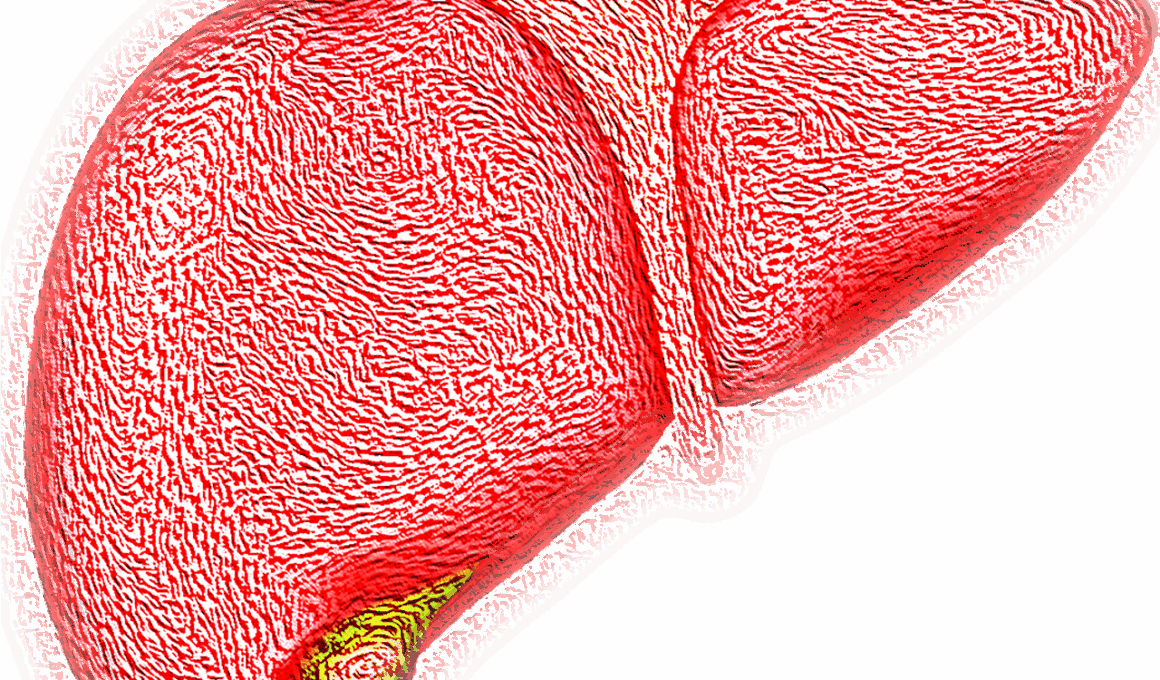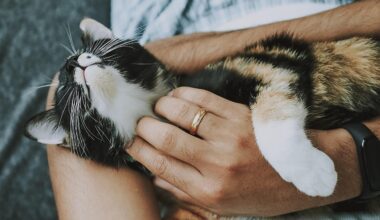How Stress Contributes to Hepatic Lipidosis in Cats
Feline hepatic lipidosis is a serious liver condition that primarily affects overweight cats. Stress plays a significant role in its development. When cats experience stress, they may stop eating or significantly reduce their food intake. As a result, their bodies begin to metabolize fat for energy, leading to an excessive buildup of fat in the liver. This condition can lead to severe liver dysfunction, potentially resulting in chronic health issues or even death. Stress in cats can arise from various factors including changes in their environment, the introduction of new pets, or disruptions in their daily routine. Understanding these triggers is crucial for cat owners to help mitigate stress levels. Identifying the signs of stress can be challenging, but many cats display behaviors such as hiding, excessive grooming, or vocalizing more than usual when feeling anxious. By providing a stable environment and minimizing stressful situations, pet owners can help prevent the onset of hepatic lipidosis. Nutrition also plays a key role in ensuring liver health. A well-balanced diet will support overall well-being and help in managing stress-induced conditions effectively.
Stress-induced changes in a cat’s behavior can directly impact their eating habits, leading to serious health concerns. Many cats, especially those prone to obesity, can be particularly vulnerable to stress-related effects on their liver health. When a cat encounters stress, their instinct may lead them to withdraw and avoid food, resulting in rapid weight loss. This rapid weight loss prompts the liver to start processing stored fat, resulting in a dangerous buildup. Recognizing the signs of stress early can be essential for maintaining your cat’s long-term health. Owners should observe their cats closely for subtle changes in behavior or appetite, and they should understand each cat’s normal baseline behavior. By fostering a calm environment for their pets, owners can help promote better health outcomes. Providing interactive toys, a quiet resting area, and regular play can encourage cats to feel more secure. Owners should also consult veterinarians for additional guidance, especially if they notice behavioral changes. Addressing stress can significantly impact the prevention and management of hepatic lipidosis, ensuring their beloved pets remain healthy and vibrant throughout their lives.
In addition to behavioral changes, environmental factors could also contribute to stress in cats, further aggravating the risk of hepatic lipidosis. Situations such as moving to a new home, new family members, or unfamiliar sounds can stress out sensitive cats. It is essential for owners to recognize that their pets might require extra support during these transitions. Building a secure space where cats can retreat and feel safe can help alleviate these stressors. Owners might want to consider using calming products such as pheromone diffusers or stress relief collars to create a more comfortable environment. Regular veterinary check-ups can also help monitor liver health and catch potential issues early, enabling proactive interventions. A combination of veterinary advice, environmental enrichment, and stress management techniques can be effective in reducing the risks associated with feline hepatic lipidosis. Furthermore, owners should not hesitate to seek professional help if they feel their pets display significant distress related to changes in their environment. Overall, understanding the unique needs of each cat is vital for ensuring their health and well-being in stressful situations.
The Role of Nutrition in Stress Management
Proper nutrition is essential for maintaining a healthy liver in cats, particularly those who may be dealing with stress. A balanced diet that includes the right nutrients can support liver function and contribute to overall well-being. Moreover, it is crucial to ensure that a stressed cat continues to eat enough. Introduce high-quality, palatable food that appeals to their taste, encouraging them to eat even in times of stress. In addition, incorporating some wet food into their diet may tempt them to eat more regularly. Owners should also be aware of portion sizes to prevent excessive weight gain, which can lead to enhanced stress levels. Healthy treats can be utilized as a reward to encourage positive behaviors. It is always best to consult a veterinarian to ensure that the diet meets the individual needs of the cat, especially if they have health concerns. Supplementing with vitamins and minerals can potentially support the liver. By promoting a healthy diet, pet owners can foster resilience against stress-induced issues like hepatic lipidosis, allowing their cats to thrive mentally and physically.
Along with diet, maintaining regular routines can significantly decrease stress in feline companions. Cats thrive on predictability, and any disruption to their usual schedule can lead to elevated anxiety levels. Consistency in feeding times, litter box maintenance, and play sessions can create a sense of security for the cat. Establishing a routine helps cats manage stress and encourages better eating habits. Additionally, incorporating interactive play and bonding time can help strengthen the relationship between the cat and their owner, reducing anxiety levels overall. Owners can encourage exploration and play with various toys, stimulating both their physical and mental engagement. Routine health checks and managing their weight can also prevent obesity, a significant risk factor for hepatic lipidosis. If a cat becomes stressed, owners should try to minimize additional stressors by avoiding sudden changes during this period. Providing gentle affection, reassurance, and understanding during stressful times can comfort a cat and improve their overall mood. Focusing on a stable daily routine is vital for promoting a happy and healthy lifestyle for each feline family member.
Additionally, stress can arise from competing or multiple pets in the household, which can potentially trigger feelings of insecurity or anxiety. Each cat has a unique personality and varying tolerance levels when it comes to sharing their space or resources. If multiple cats are exhibiting signs of stress, it is crucial to assess their living situation. For example, ensure that each cat has access to its own resources, such as food, water, and litter boxes. Providing separate spaces or comfortable hiding spots for cats can enhance their sense of security. Initiating an appropriate introduction process when adding new pets can significantly benefit the household dynamic. By understanding and addressing the social needs of each pet, owners can minimize conflict-related stress. In cases where competition is unavoidable, behavioral interventions or modifications may prove effective. The goal is to create an environment in which all pets feel secure in their territory without stress disrupting their eating habits. By fostering a proper social structure among pets in the home, owners can protect against the development of hepatic lipidosis in their cats.
Conclusion
In summary, stress undoubtedly contributes to the development of hepatic lipidosis in cats, necessitating a proactive approach to management. Recognizing the signs of stress and implementing strategies to alleviate anxiety are paramount in fostering a healthy environment for feline companions. From ensuring proper nutrition to maintaining a stable routine, each element plays a vital role in preventing stress and subsequent liver issues. Owners should undertake early interventions, particularly during transitions, when stress is likely to peak. Environmental modifications, enrichment activities, and providing designated safe spaces can bolster a cat’s sense of security. Understanding that each cat has its unique needs will guide owners in creating a supportive home for their pets. Additionally, regular check-ups with veterinarians allow for ongoing monitoring of liver health, ensuring any issues are identified quickly. By taking preventative measures, pet owners can ensure that their cats lead happy, healthy lives free from the threat of hepatic lipidosis. Through attentive care and prompt action, they can significantly improve their furry friends’ well-being during moments of stress, allowing for a fulfilling companionship for years to come.
Ultimately, a commitment to understanding feline behavior and nutrition will lead pet owners on a path toward safeguarding their cats against this potentially dangerous condition. The combined efforts of proper diet, stable environments, and routine veterinary care create a strong foundation for a cat’s overall health not functional. When emotional and physical well-being are prioritized, the risk of developing hepatic lipidosis diminishes significantly. Cats are sentient beings who experience stress much like humans; thus, addressing their emotional needs forms the cornerstone of sound pet care. Every little consideration made towards their comfort and happiness enhances their quality of life. Moreover, creating a symbiotic relationship underpinned by trust will encourage cats to thrive in their environment. It is all about ensuring a loving and supportive atmosphere. Stress in cats is often underappreciated but addressing it head-on forms the key part of preventing serious health issues. In closing, a holistic approach that considers emotional, social, and nutritional needs empowers pet owners to create safe havens for their furry companions, fostering health and happiness across their feline’s lifespan.


